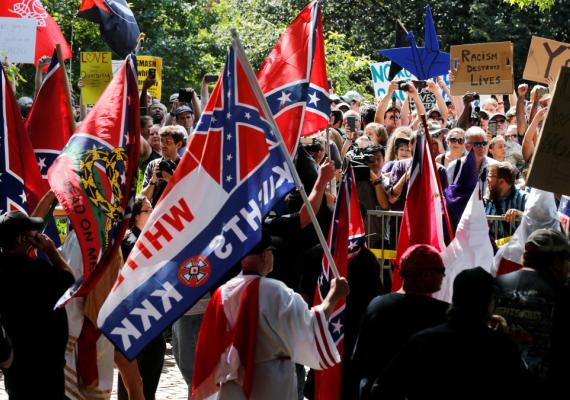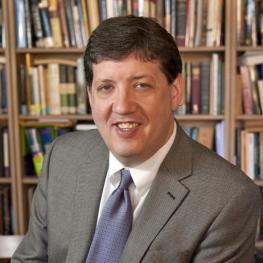Response to Charlottesville

In response to the violence in Charlottesville this last weekend, Dr. Amy Gutmann, president of the University of Pennsylvania, has issued the following statement:
The racism, anti-Semitism, and other bigotry expressed by the neo-Nazi, KKK and other white supremacist groups that demonstrated in Charlottesville are deeply abhorrent and call for universal condemnation. The hatred espoused is inimical to any decent society and anathema to the most fundamental ideals of our University.
President Gutmann’s statement speaks for itself. I would only add a bit of commentary from my perspective as director of the Katz Center: that the hatred displayed during the Unite the Right rally this last weekend is anathema to the most fundamental ideals of the university.
The ostensive trigger for the rally was the city’s decision to remove a statue of Robert E. Lee from a local park, but it isn’t a coincidence that the organizers chose a university community as their staging ground. For many of those in the far right, the university is a threat, the instrument of their arch enemy—the Jews.
Jason Kessler, the former University of Virginia student who organized the Unite the Right rally, is an example. He builds on an anti-semitic conspiracy theory known as “Cultural Marxism” that posits a covert assault on American values initiated by a supposed cabal of Jewish philosophers based at Columbia University. A distortion of the Frankfurt school of social theory, this group of thinkers uses its position to undermine white ethnic pride and promote sexual promiscuity.
Kessler’s tweeting suggests that he sees universities today as hotbeds for Cultural Marxism and that the rally he organized was in part payback against “militantly anti-white academics.”
For other far right thinkers like David Duke, the enemy is another academic, Franz Boas (1858-1942), the anthropologist they blame for introducing multiculturalism into American life. They take elements from Boas’ biography and thinking—the fact that he was a Jewish émigré and that he argued against race as a meaningful biological category—and weave it into yet another conspiracy theory that has been circulating for some 60 years since it was articulated by the neo-Nazi George Lincoln Rockwell.
For such thinkers, the Jews have taken over the university in an effort to undercut the supremacy of the white race by dismantling the idea of race, by imposing political correctness, and by championing cultural relativism.
Ironically, for all their hostility to academia, such leaders also seek its recognition. As documented by the Southern Poverty Law Center, for example, Duke casts himself as an academic. He refers to himself as a “Dr.” based on a doctorate he received at an anti-Semitic Ukrainian institution known as a diploma mill, and he professes to adhere to high academic standards despite evidence that a good portion of his self-published book was plagiarized. The far right’s hostility to academia isn’t simply anti-intellectual; one also detects within it a craven desire for academic acceptance. The far right understanding of the university is of course a caricature—and it is now clear that it is an extremely dangerous one.
But it is true that universities like Penn are places where minorities can find a place for themselves and where people can learn about different cultures—these are values to which the Katz Center itself is deeply committed as a center devoted to a deepened understanding of the Jews in relation to other cultures. The Unite the Right rally targeted Jews, Blacks, the LGBTQ community, immigrants, and other vulnerable groups, but it was also a lashing out against academic values—and against Jews as a part of academia— and that too needs to be defended as the struggle to maintain the United States as a decent and inclusive society continues.
